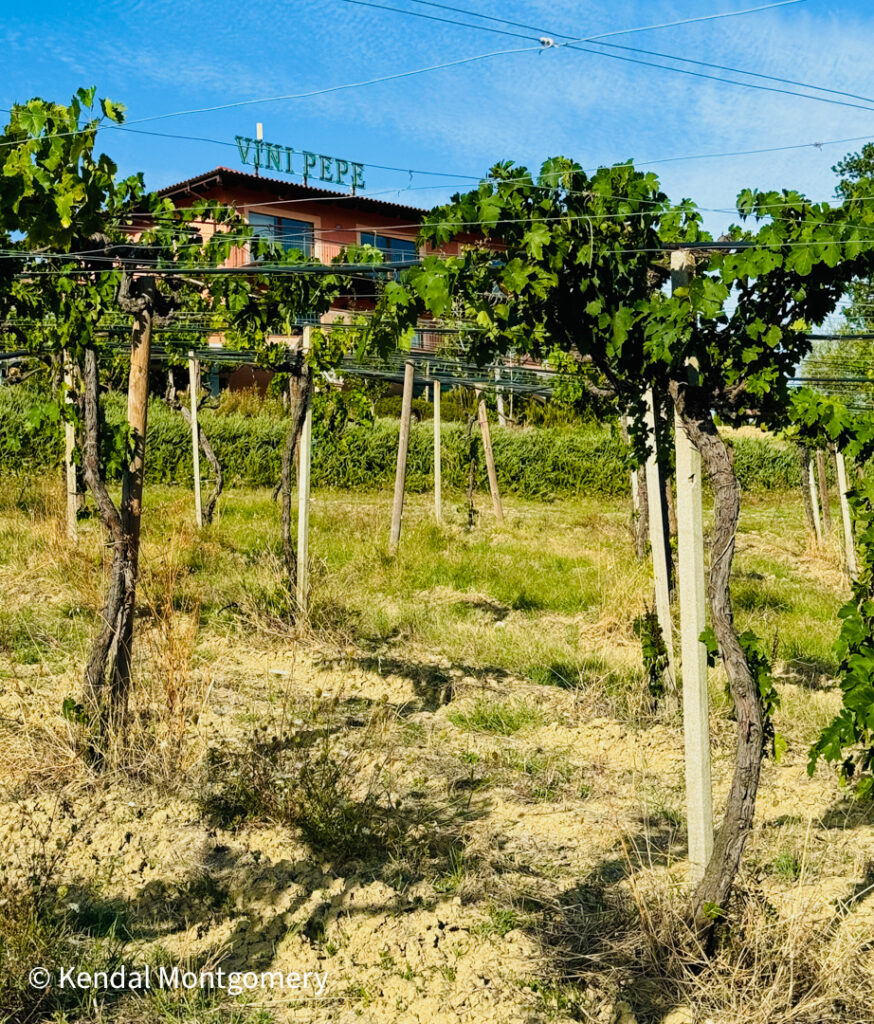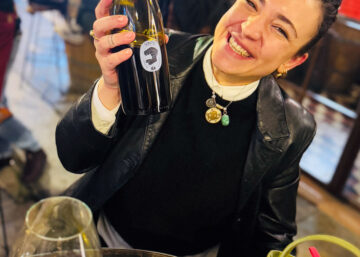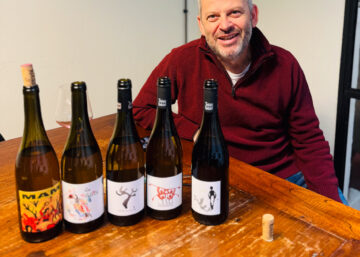I’d always dug what I knew of Emidio Pepe, but upon being with the family and understanding their beautifully simple philosophies of farming and winemaking, well, it’s amore.
First, when you’re there, you are WITH the family. I learned from Chiara and Elisa, I saw Daniela over there, and I even caught a glimpse of Signore Emidio himself…The family is not a mere face, not another marketing ploy. Emidio Pepe wines come from a small family that has been making wine and farming the rolling hills of Abruzzo for three generations now.**
Yet I find that Casa Pepe is less about tradition and more about understanding. Experience plays a major role, but adhering to what works and accepting that it can change is their driving force—that and spontaneous fermentation. Just observe the empty stainless steel tanks in the cellar while all the concrete tanks are full to get the idea. Or take the plot experimenting with raw organic milk from a local farm to avoid using copper. Nothing is set in stone.

In the beginning, Emidio only worked with one hectare. He wanted to get personal with each vine and have time to observe. After seven years, his farm has slowly expanded to 17 hectares planted, and though they have 34 hectares total to work with, nobody is interested in growing more anytime soon. They know what they and their land can handle. Plus the idea is to maintain a “bubble,” to leave distance between their farmland and the borders of their property. What good is your hard work when it’s contaminated by harsh chemicals if a neighbor chooses the easy way out?
Everything is organic and pretty much biodynamic. There’s a no-stress mindset at Emidio Pepe, thus Pergola training is the ticket, allowing for greater volumes at low densities to ensure strong root systems. Another Pergola perk is that photosynthesis is doing the ripening, which grows thinner-skinned grapes that mature slowly and steadily. This creates wines quite contrary to much of what we think and know about Montepulciano de Abruzzo. High tannins and full-bodied are not relevant descriptors for Emidio Pepe wines.
Gentle extraction in the cellar also helps. The whites (Trebbiano mainly, and some Pecorino) are foot-trodden upon arrival with open-air pressing—zero maceration. The reds (Montepulciano) are destemmed and the whole clusters macerate for a maximum of eight days with three to four punchdowns a day.
The rest is up to the yeast. Nobody at Emidio Pepe is a winemaker. They’re farmers. So spontaneous fermentation is key. Everything then ages for a minimum of two years. They don’t filter, just bottle from the top of the tank. It’s all very simple, but the wines are far from basic. They’re incredibly age-worth head-turners.
But that’s for another post 🙂
**(Technically, it’s been more, as Emidio was working his father and grandfather at Casa Pepe, established in 1889.)


